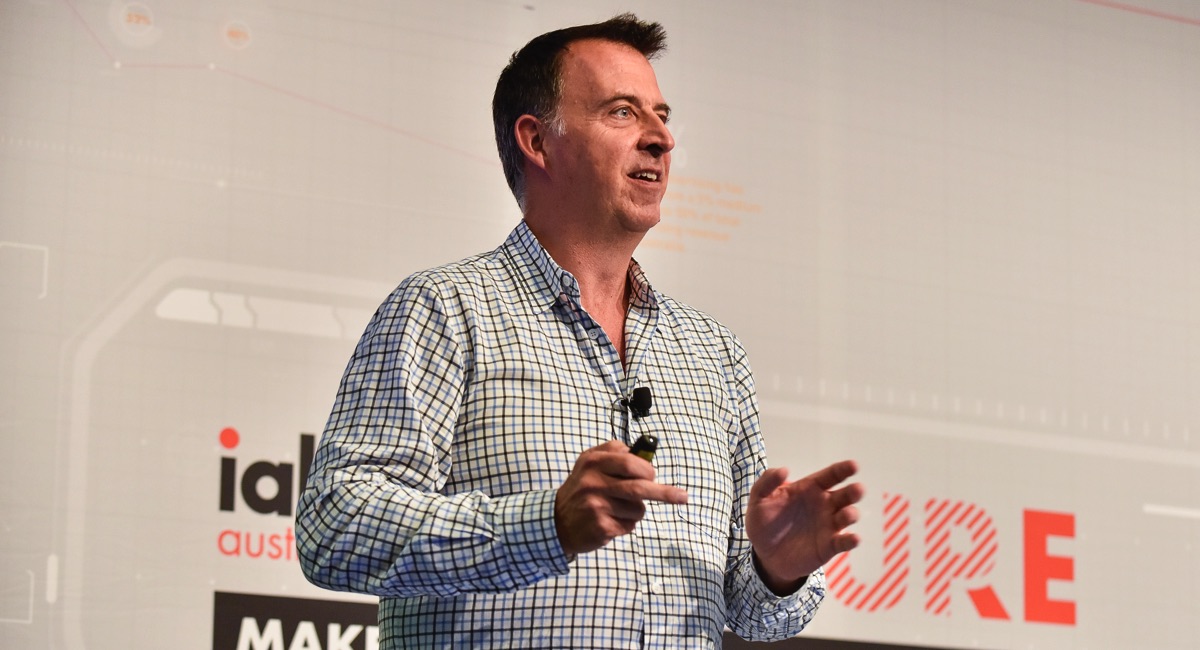Australia is a very sophisticated market when it comes to advertising on Google. It was something that the company’s chief search evangelist Nicolas Darveau-Garneau was “happily surprised” by when he took on his current job six months ago. Mediaweek spoke to Darveau-Garneau recently when he was in Australia for IAB Australia’s Measure Up conference in Sydney. He also used the trip to visit Google’s office in Melbourne.
“There is a high usage of Google here, so you have very digitally savvy consumers. The companies are also very savvy. Some of our best advertiser practices when it comes to the usage of machine learning and automation come from Australia.
“There are a lot of good things happening here.”
“Successful advertisers tend to choose five to 20 keywords”
Speaking about the unorthodox use of the term “evangelist” in his job title, Darveau-Garneau laughed and said he had nothing to do with it, “it came with the role”. However, it’s a term that sits very well with his job responsibilities.
He explained: “Google has lots of ways for people to advertise. So for example, if I am typing in ‘auto insurance’ on Google, you can advertise on that by buying that keyword. There are lots of different strategies to do that.
“I work with many of our top advertisers around the world to help them be more successful with using our advertising tools.”
Companies can set up their ad campaigns on Google by using its advertising service called AdWords. The system is split into two networks: Display and Search. The former encompasses any display advertising including video ad placements on YouTube. Google’s Display network spans over two million websites, which it claims to reach over 90% of the people on the internet.
Meanwhile, the Search network is primarily about the purchase of keywords that a consumer may look for on the search engine. How high a business’s ad is placed in the results depends on its relevancy to the search made and the bid amount that a client has spent to purchase their keyword(s). Successful advertisers tend to choose five to 20 keywords. The cost of purchasing a keyword depends on many factors including the competition in the auction.
The search giant promotes advertising on Google Maps as a way for local businesses to attract customers. Advertisers can enable location extensions on their AdWords account to allow users to see their location in the search results. The ‘Google My Business’ service also allows businesses to feature strongly in search and maps results in their local area.
When asked which advertising method is the most effective, he said: “The advice I give advertisers is to measure and test things. Having said that though, search advertising typically tends to perform really, really well. So most advertisers who are looking for a higher ROI will typically begin with Search [network].”
Darveau-Garneau said it’s important for clients to be as specific as possible with the keywords they purchase and avoid buying generic words and terms. His tip was to think about keywords the way a consumer would.
Digital marketing is becoming a priority for companies all around the world. Darveau-Garneau said, “In most countries, digital marketing is either the #1 or the #2 advertising medium.
“It’s grown really quickly over the last few years.”
Of course digital (or online) marketing extends beyond just advertising, as aligning content creation with keyword strategy can create dramatic gains from search traffic.
—
This is an excerpt of the full article, which appears in the latest issue of Mediaweek magazine.
Mediaweek has been covering the Australian media industry every week for over 27 years – all for an annual price of less than one conference.
We continue to rely on subscription revenue to support our independence. Subscribe here.
